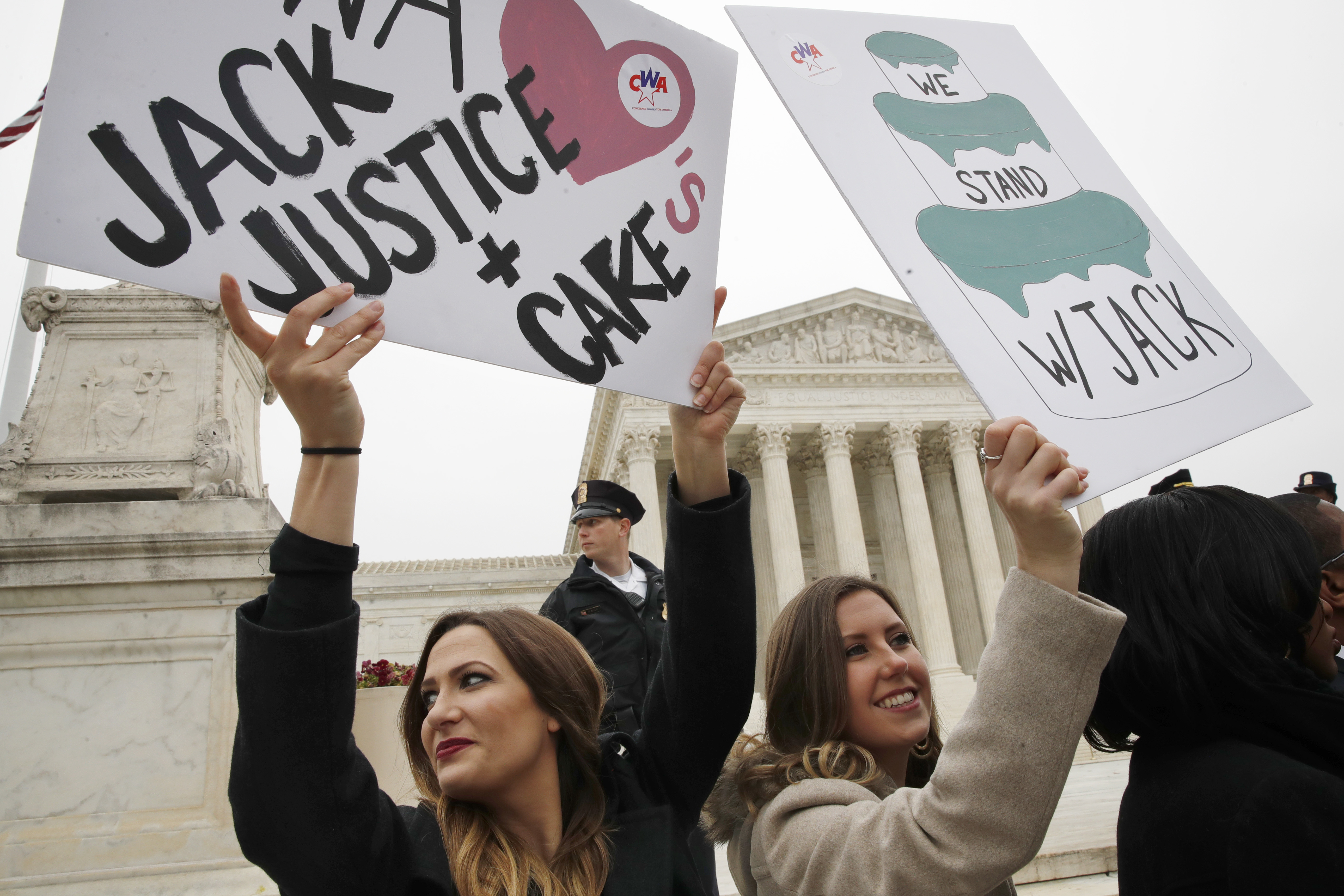Restitution orders continue to be a thorn, Masterpiece Cakeshop appeal proceeds | COURT CRAWL

Welcome to Court Crawl, Colorado Politics’ roundup of news from the third branch of government.
The state’s Court of Appeals continues to find fault with orders for criminal defendants to pay financial restitution to their victims, and Masterpiece Cakeshop will press the Colorado Supreme Court about the boundaries of the First Amendment.
Restitution confusion
? Two years ago, the state Supreme Court clarified that the deadlines and procedures for ordering criminal defendants to pay restitution aren’t just window dressing. Instead, trial judges need to be vigilant about the law’s requirements. Recently, the Court of Appeals overturned two restitution orders for a failure to comply. In a case out of Denver, a judge imposed $17,360 beyond the deadline, and in another case out of Boulder County, the prosecution didn’t even submit its request in the required window.
? The Court of Appeals also broke with its own prior decision (which it is allowed to do, even if it creates confusion for trial judges), and determined the money law enforcement uses for controlled drug purchases isn’t something a defendant has to pay back as restitution. Finally, an appellate panel decided, 2-1, a Pueblo city council member could be ordered to pay for the vandalism of a retaining wall, even if he didn’t personally cause all the damage.
First Amendment v. CADA
? Five years ago, the U.S. Supreme Court decided Colorado didn’t treat Masterpiece Cakeshop and its owner, Jack Phillips, fairly when adjudicating a complaint that Phillips discriminated against customers on the basis of sexual orientation. It didn’t answer the broader question of whether Phillips, a Christian, had a First Amendment right to refuse to make a wedding cake for a same-sex couple.
? As readers of the Court Crawl probably know, the Supreme Court gave a narrow, but clear, directive this year in the case of 303 Creative v. Elenis. The conservative majority held the Colorado Anti-Discrimination Act, or CADA, couldn’t force a Christian graphic designer to “speak” in favor of same-sex weddings by creating websites for such events.
? Back to Masterpiece Cakeshop, the Colorado Supreme Court has agreed to address whether Phillips’ cake making is speech protected by the First Amendment (the Court of Appeals didn’t believe it was) or whether he violated CADA by refusing to make a cake to celebrate a customer’s gender transition.

Also heard on appeal
? By 6-1, the Colorado Supreme Court concluded that judges alone, and not juries, may decide whether to increase a misdemeanor conviction to a felony based on a defendant’s prior convictions. While juries could potentially side with the defendant and find prosecutors haven’t proven the necessary priors, they could also be affected by damaging information about a person’s criminal history. Justice Richard L. Gabriel took the unusual step of suggesting the U.S. Supreme Court should review the case.
? Yet again, the Court of Appeals has overturned a set of convictions out of Adams County because the trial judge used an analogy to illustrate reasonable doubt that lowered the prosecution’s burden to prove the defendant guilty.
? A Mesa County judge, who happens to be the newest member of the federal bench in Colorado, imposed an illegal sentence and didn’t properly explain why he was subjecting the defendant to lifetime sex offender registration, the Court of Appeals ruled.
? A male student from Jefferson County may pursue defamation claims against the female students and their mothers who called him a “predator” to school officials, even after he was acquitted of criminal charges related to sex assault.
? The Court of Appeals reversed a trio of decisions made in child neglect cases. One judge out of Montrose County was the subject of three reversals in less than a month.
Trial in the death of Elijah McClain
? Colorado Politics’ sibling publication, The Denver Gazette, has been following the criminal trial of two Aurora police officers for their role in the 2019 death of Elijah McClain. McClain’s encounter with police and paramedics helped spur the passage of law enforcement accountability legislation in 2020. Jurors will begin deliberating this week. Here are the latest developments:
‘Violent subdual and restraint’: Prosecutors’ final witness in Aurora officers’ trial takes stand
No witnesses called in defense for Aurora officers charged in Elijah McClain’s death
In federal news
? The U.S. Court of Appeals for the 10th Circuit warned trial judges they have an obligation to appoint a guardian in cases where a litigant appears mentally incompetent.
? A federal judge refused to dismiss a lawsuit against Secretary of State Jena Griswold, in which a group is accusing her office of withholding information about deceased voters in violation of the law.
? A federal judge appeared conflicted about whether a Christian preschool operating in Chaffee County had a viable challenge to the state’s universal pre-K program – specifically, the requirement that providers not discriminate on the basis of sexual orientation, gender identity or religion. Although it was clear the school does discriminate along those lines, the preschool continues to participate in the program and receive the state’s money, without any request to change its policies.
? Rocky Mountain Gun Owners is again asking a federal judge to block enforcement of a new three-day waiting period for gun purchases that the Democratic-controlled legislature enacted this year.
Miscellaneous proceedings
? Last month, Colorado’s judges, justices, magistrates and water referees gathered at a luxury resort in Vail for the annual judicial conference, where they learned about updates in the law and about how to become better at what they do. Justice Carlos A. Samour Jr., who helped organize this year’s event, spoke to Colorado Politics about what happened.
? The man accused of murdering 10 people at a King Soopers store in Boulder is competent to stand trial, a judge concluded.
? A new state law has taken effect expanding the ability for those convicted of felonies to obtain DNA testing, as a guard against wrongful convictions.
? The 12th Judicial District (Alamosa, Conejos, Costilla, Mineral, Rio Grande and Saguache counties) is holding a warrant clearance event for those wanted for various lower level offenses. It will take place on Oct. 27 at the Alamosa Combined Court. Contact caitlin.mizell@judicial.state.co.us for more information.













